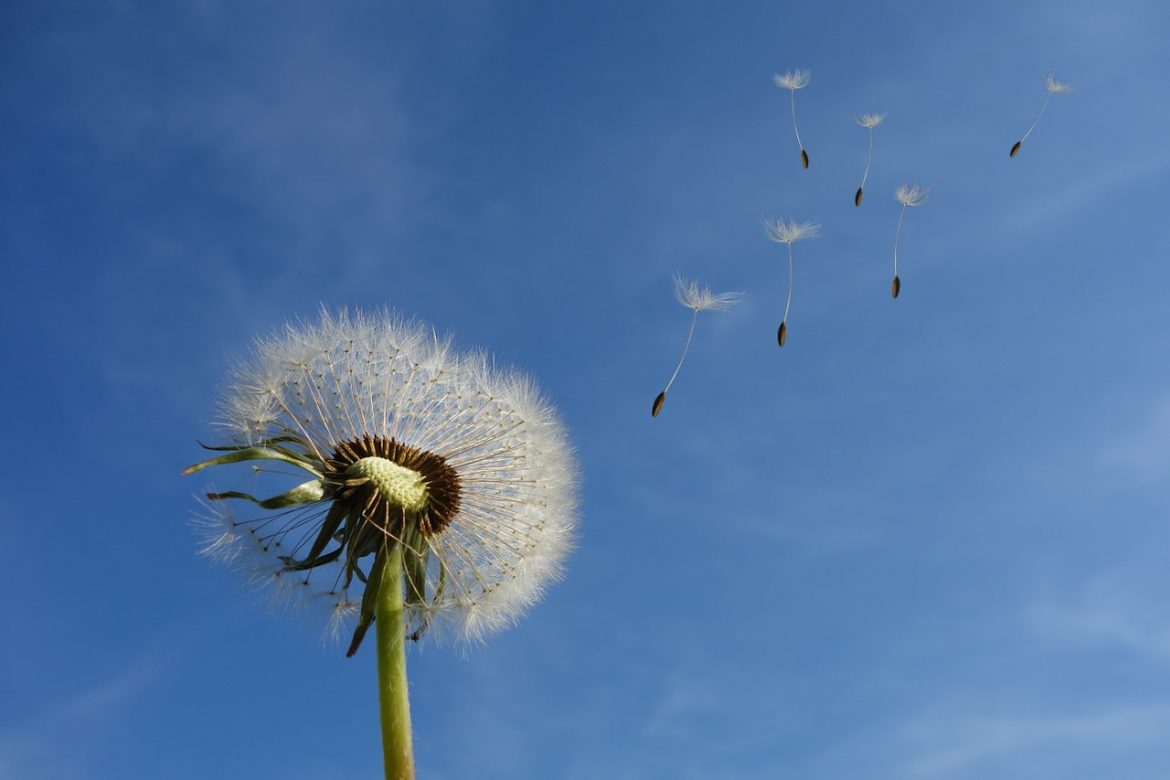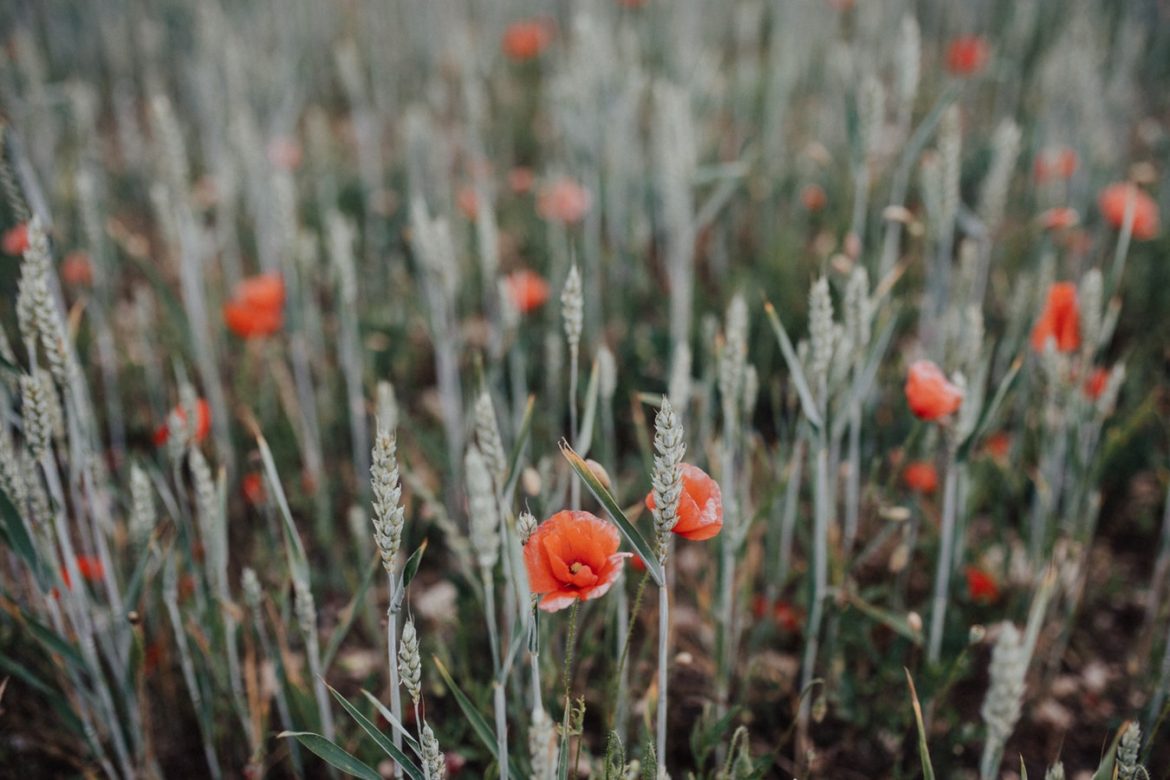By Lynne M. Baab —
In my first post in this series, I described a community dinner and a prayer support group as examples of patterns of Christian caring that are now being recognized as pastoral care. Those two examples illustrate several of the trends in pastoral care that I identify in my new book, Nurturing Hope: Christian Pastoral Care in the Twenty-First Century.
Here are the seven trends I think need to be in the front of our minds today in the area of Christian care today:
- Pastoral care has many models. The model of pastoral care from 50 years ago, a minister sitting in an office having a one-on-one counseling session with a parishioner, still remains. In addition, people who lead the Wednesday Night Dinner I described in my last post – cooks, servers, greeters, clean-up people, and folks who are trying to build relationships across socioeconomic boundaries – are providing care, as are people in small groups, task groups, and music groups in congregations. A conversation in the parking lot after a committee meeting, where two people take the time to ask how each other is doing, is also a form of pastoral care.
- Teams and a variety of individuals provide pastoral care. Many congregations these days have pastoral care teams. Roman Catholics led the way here because the shortage of priests means that others in the parish must provide pastoral care for parishioners who are in need. In my own Presbyterian congregation, the board of deacons functions as a pastoral care team, taking meals to people who have just gotten out of the hospital and bringing communion to shut-ins.
- Christian Pastoral Care Is Grounded in the Triune God. The term “pastoral care” is used in numerous secular settings these days, and Christians can only rejoice when people provide any form of care. However, Christians must have a clear understanding of what makes Christian pastoral care uniquely Christian. I wrote last week about the shepherd passages in the Bible. Christian pastoral carers must understand and experience God as our Shepherd, the one who guides and empowers human care-givers.
- Christian Pastoral Care Is Missional. About 25 years ago, some Christians began to use the word “missional,” to refer to the understanding that we are sent into the world as Jesus was sent (John 17:18). Christian pastoral care is always a part of the mission of God, revealed in Jesus Christ and empowered by the Holy Spirit, to bring God’s love to the world. Christian pastoral care today, then, meets needs within congregations but also in the wider community.
- Pastoral Care Occurs across Ethnicities and Religions. Throughout the world, cities, towns, and neighborhoods are becoming more ethnically diverse. Many congregations have experienced increasing diversity. As congregations reach beyond their doors to their community, they often encounter ethnic and religious diversity. Caring today involves engaging with and meeting needs experienced by people who are different than we are.
- Pastoral Care Empowers. In many caring professions like social work, professionals are becoming more aware of the dangers of dependency. The goal of professional care is to empower people to find their own strength. Christian pastoral carers increasingly have the same concerns. One small, unexpected strategy that encourages empowerment is the growing awareness that all Christians are sometimes carers and sometimes care recipients. No one lives in one role forever, and that is quite freeing.
- Pastoral Carers Consider the Web of Relationships. Individuals don’t exist in isolation. All of us are embedded in families and communities. In the past, pastoral care was often viewed as helping an individual. In the twenty-first century, we have a growing understanding of the significance of the clusters of people connected to those to whom we are providing care. Increasingly, pastoral care seeks to meet the needs of families and other groups of people.
These seven trends are shaping pastoral care in our time. I invite you to ponder the way you see the trends impacting Christian ministry in your setting. In my next two posts I’ll discuss skills for pastoral care. To be continued . . .
By Rodney Marsh —
Life itself is imperfect. Always. Imperfect – my life, your life, our life together. Always. However imperfection is a sign of coming perfection. No imperfection – no glorious hope – at least in this life.
Thirty years ago my identical twin brother died. Without him, I will always be an imperfect whole. But that’s ok. I was an even more imperfect whole when he was alive.
A large part of my healing has been acceptance of my own imperfection through Christian meditation. I wrote this poem about my journey. It’s called
Tohu wa-bohu
Nietzsche stared into the Abyss
The Abyss stared back
He went mad.
Kierkegaard looked into the Abyss too
The Abyss said, “Jump”.
He jumped.
I saw the Abyss once.
I looked away.
Whilst looking away, I tried to see the darkness
(I used the light of my mind)
I could not see the darkness.
I listened to the silence.
I could hear nothing.
(except the sound of silence)
The silence then whispered: “turn”
I turned.
I cannot see or hear the Abyss,
but my heart senses an echo
Pregnant with promise.
‘Tohu wa-bohu‘ (formless nothingness) are the wonderfully onomatopoeic words of the Hebrew Bible describing the time before God spoke ‘being’ into existence.
by Christine Sine
This morning I turned on the kitchen lights when I got up in the morning. It’s the first time since summer began. We still expect warm days and abundant harvests for the next month or so, but this is my first warning that the seasons are about to change. It reminds me of when I worked in Jamaica. One of the common road signs read You Have Been Warned. It didn’t tell you whether there was a sharp curve or a pothole ahead, you just knew that it was time to be alert and keep your eyes open for change.
Change is the most constant aspect of our world. Seasons change, lives change, the world changes and our faith changes. In our lazy enjoyment of summer beauty and relaxation, it is easy to bury our heads in the sand and forget. Yet deep down we know change is coming and we all need to think about how to get ourselves ready and August is a good time to prepare.
As I thought about this over the last few days I realized that August has much to teach us about autumn and winter. You have been warned – It is time to plan! The more I thought about this the more I wanted to share so have decided to write 3 posts on August planning:
- Planning to plant.
- Planning for storage.
- Planning for harvest.
Be Alert To the Signs
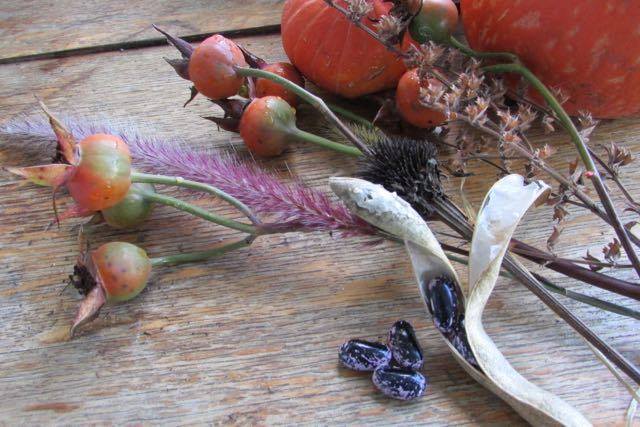 What are the signs around you that suggest change is on its way and you need to prepare? To be honest I don’t always prepare well (yep that is one of my imperfections!) I am a hot weather person and hate to think that summer may be on its way out. It’s easy to ignore the changes and procrastinate on my preparations for the changing seasons. I don’t want to be a killjoy either. I want to enjoy the rest of the summer to its full. But I do need to be alert to the signs that autumn and winter are on their way and change is coming. Being alert means I can plan well to both embrace and accept change without fear or regret.
What are the signs around you that suggest change is on its way and you need to prepare? To be honest I don’t always prepare well (yep that is one of my imperfections!) I am a hot weather person and hate to think that summer may be on its way out. It’s easy to ignore the changes and procrastinate on my preparations for the changing seasons. I don’t want to be a killjoy either. I want to enjoy the rest of the summer to its full. But I do need to be alert to the signs that autumn and winter are on their way and change is coming. Being alert means I can plan well to both embrace and accept change without fear or regret.
Plan Well
Preparing for autumn and winter in the garden is all about planning – with realistic expectations for the seasons that don’t need hothouses and grow lights to be productive.
Plant Responsibly.
What seeds should we plant now in preparation for the season ahead? August may be the hottest month in Seattle, and prime time for vacations but it is also the time to plant for fall and winter harvests. In fact I have been doing that over the weekend. However what I plant is different from my spring garden. I don’t plant tomatoes and squash that need heat to mature.
First I plant spinach, Asian greens, broccoli and root crops that I know will enjoy the cooler weather and mature quickly before the frost. I also plant overwintering crops that can get a good start now then sit dormant through the coldest months before maturing early in spring next year. Next I plan to plant autumn shrubs – perennials like blueberries and spring bulbs like daffodils and garlic. They may not show any growth until next year, but if I plant them in the autumn they send down deep roots that anchor them firmly in the year ahead. Last of all I plant cover crops that hold the soil together over the winter and then are tilled in in early spring to give a boost of nitrogen for next year’s crops.
Plant for Winter Slow Down.
I realize that I need to show the same responsibility in planting for growth and harvest in my body, soul and spirit. What new practices can I plant now that will enrich the upcoming seasons? How do I plan for autumn and winter soul harvests in the Northern hemisphere – fast growing, cool loving greens and root crops whose sweetness is enhanced by the first winter frost? Or in the Southern Hemisphere for the longer harvest season of spring and summer?
Once again it’s all about planning! And that planning needs to be both responsible and realistic just like my garden planning. If you are heading into Fall and winter as we are, it is good to remember that just as garden growth slows as the weather cools, so does the pace of our bodies and spirits. Our bodies create more rest. Maybe the lead up to Christmas is not meant to be the hectic and exhausting season we have made it into.
Plant for Root Growing.
What are the spiritual equivalents of perennials that need the winter to send down deep roots I wonder? For me it is scripture study and memorization. As I get ready for the winter this is a great time to get back into the disciplines of study. This year Jane Mossendew’s beautiful trilogy Gardening with God three books that walk us through the liturgical seasons of the year with plants to guide us each week. I am currently into The Crown of the Year. It’s really more about summer, but I am finding that her historical and liturgical insights are refreshing and give focus to any season.
What Spiritual Seeds Are We Sowing?
What seeds do we need to plant now that can provide food in the seasons ahead? Perhaps plan a retreat and away days – it’s time to get them on your calendar now before life gets too busy. Or create some spiritual tools and mindfulness exercises that will remind you to slow down and invite you to reflect and meditate. I have just purchased some canvas prints of a few of my prayer cards with this in mind. They will feature prominently in my sacred space over the next few months as a reminder of what the pace of my spiritual life is meant to be like. I take some deep breaths in and out, recite a prayer and spend a short time in silence each morning. It renews me in ways that nothing else does.
I am also thinking about my own desires for Advent and Christmas – how do I plan now so that these seasons are not hectic and overwhelming? What are the “cover crops” I need in my life that will protect the vulnerable soil in my soul in my soul and keep it safe over the winter? What elements will I add to my sacred space? What do I want my Advent and Christmas meditation gardens to look like?
What Is Your Response?
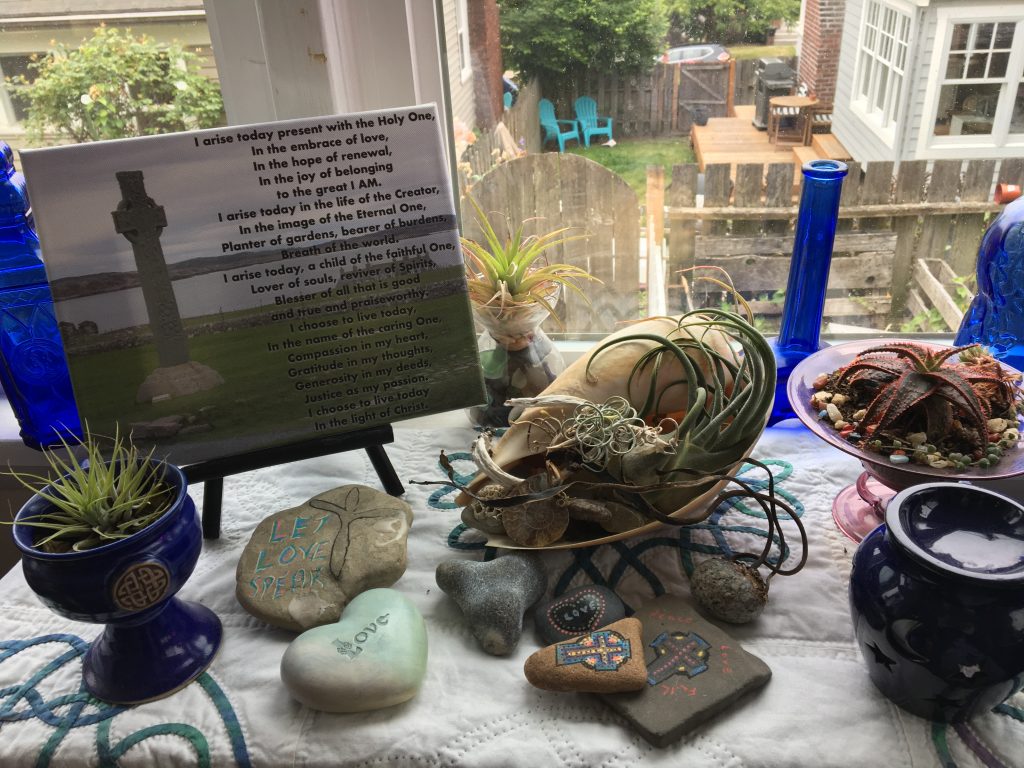
Prayers on the altar
One of my life scriptures is Psalm 31:14-15 But I pour my trust into You, Eternal One. I’m glad to say, “You are my God!” I give the moments of my life over to You, Eternal One. Particularly in times of change it is a great reminder that I do not control the future, God does.
Change is coming whether we like it or not. Watch the video below. Reflect on the changes you are facing in your life in the next few months.
What plans can you make now to weather the winter (or summer) well? What can you plant now that will nourish you over the Advent and Christmas seasons?
Let’s get prepared and remember our times are indeed in God’s hands. And keep your eyes open for next week’s post on planning for storage.
MARK 6 // Jesus left there and went to his hometown, accompanied by his disciples. When the Sabbath came, he began to teach in the synagogue, and many who heard him were amazed. “Where did this man get these things?” they asked. “What’s this wisdom that has been given him? What are these remarkable miracles he is performing? Isn’t this the carpenter? Isn’t this Mary’s son and the brother of James, Joseph, Judas and Simon? Aren’t his sisters here with us?” And they took offense at him.
Sometimes knowing someone for a long time means you don’t really see them. You can miss who they really are because you think you know them. How about you? Have you been in awe of Jesus lately or have you been more doubtful because you’ve known Him so long? Talk to Him about this.
Recently, I’ve found that I need new vision, new eyes to see Jesus with again. I realized that I’ve gotten blinded to the amazing uniqueness of His great love. I was journaling from this passage in Mark and realized just how much this culture of anger and division has hurt my heart. The hardness and harshness of politics has shut down my ability to see and caused my heart to harden a bit. I drew this picture in response and wrote this poem/prayer days later as I processed my need for a new heart.
Today if you hear God’s voice, harden not your hearts.
By John Birch —
There are days in all of our lives, I guess, where any hope of peace, reflection or simply space to be alone is lost to the demands of work, family or friends (etc). There can be days full of joy, but also ones which pull us down and leave us stressed and vulnerable. Getting a balance within our lives of those things which must be done now, and those which could be deferred until tomorrow is not always easy, but is important, both for our health and our faith.
We are followers of Jesus, and as such act as his hands and voice within the world. Yet even the Son of God had to find time to be alone with his Father and with his thoughts, be at peace even if just for a short while, put the day ahead into focus before getting on with the day.
We need to prioritise within our daily lives, to be good stewards of our time and love as we also seek to be good servants of our gracious God.
Within the clutter
and confusion
of our daily lives,
help us prioritize ,
be good stewards
of our time and love,
grateful servants
of our gracious God.
Greetings from Seattle where Tom and I are enjoying a warm and beautiful summer. Like many of you we have relaxed our work schedule and are drinking in the beauty of our surroundings.
It is, I feel a well-deserved rest as I have just handed in the edited version of my upcoming book The Gift of Wonder. Last year I was riveted by Jesus phrase “To enter the kingdom of God you must become like children” and asked my Facebook friends “What are the childlike characteristics that make us fit for the kingdom?” I received dozens of responses and made a list of twelve characteristics that I explore in this book – play, curiosity, awe, love of nature and many more. It has been a wonderful experience for me and I am excited about its release next year, hopefully in March. Be sure we will keep you posted.
Tom is starting work on a book too, though his is still in the early planning stages. He would appreciate your prayers as he develops a proposal to engage publishers.
Emails have changed
Imperfection # 1 – we forgot to let everyone know that in the transitions of this last year our emails have changed. The msaimagine emails no longer work so please delete them from your contacts.
My email is now seasickdoctor@gmail.com
Tom’s is twsine@gmail.com
Godspace Admin is godspacelight@gmail.com
Godspace has moved again
Evidently the server we were using was inadequate for the task. Godspace has grown so much over the last few years with daily posts, many resources and an active store. All of this means more space needed. I pray this will be the last move. We now have a new web team working with us and they seem to be far more professional than the last who I think had only worked with small blogs in the past and so was overwhelmed by Godspace. We in our ignorance did not realize what a problem this could create for us. Not only are we imperfect but our website is too.
In the process we have lost many of the photos on posts and need your help to get them back. Please look through the posts you like to revisit and let us know which ones have no photos. If there are prayers missing and you know which ones they are we would love your help in reposting these. Embarrassingly I have not always kept a record of prayers I post so am having trouble recalling what belongs where.
On the up side people love the new website. It is so much easier to find posts and resources. I think we are getting there. Please help us get the website back into the best shape possible. As you can imagine this has been a frustrating (and expensive) process that has been a challenge for Hilary and I as it drained time from other priorities.
Our focus on Godspace for the next couple of months will be Spirituality of Imperfection. We are all imperfect – flawed, incomplete, longing to be made whole. We all make embarrassing mistakes and I am hoping that we will get a taste of these as our authors contribute posts for the series. I kicked off a little early last week with my post Meditation Monday – The Spirituality of Imperfection.
In October we will start a theme: “Getting Ready for Christmas” We will look at how we can simplify, do justice, consider alternative gifting like fair trade, buy locally or DIY gifts, live sustainably during the holidays as well as how to give a different spiritual focus rather than consumerism. After American Thanksgiving we will have a week of gratitude leading up to Advent and Christmas.
There are lots of great posts from the last couple of weeks that I would encourage you to read especially:
Lilly Lewin’s God Speaks Through Crayons
John Birch’s prayer May the Love of God
Tom Sine’s Waking Up To being a Privileged White Guy.
Enjoy the season whether it be summer or winter for you. Many blessings on you all we appreciate your prayers and encouragement.
Christine Sine
Godspace founder and facilitator
By Lynne Baab —
For more than 20 years, a church in Seattle has offered dinner on Wednesday nights to anyone who wants to come. Numerous homeless people and others on the margins attend.
Members of the congregation are encouraged to attend, in order to build relationships with the people who come to the dinner. Over the years a great deal of caring has gone back and forth between the congregation members and the homeless and low income people who attend the dinner. For many years, the church hired a part time social worker to help people in the Wednesday Night Dinner community with housing and job issues.
Should this ministry be called local outreach or pastoral care? The answer must be “both.”
Five women meet twice a month to share prayer requests and pray for each other. They listen to each other deeply and support each other in many ways. Between their meetings, prayer requests often fly around in emails and text messages, and words of support and encouragement are sent in response. The members of the group know that the others are praying for them.
Is this a small group or is it pastoral care? Again, the answer must be “both.”
Pastoral care in our time is changing. More accurately, our understanding of what constitutes pastoral care is changing. Fifty years ago, most Christians perceived pastoral care as something done by a pastor or church staff person, involving one-on-one conversations in a church office or a visit by the pastor to a parishioner’s home.
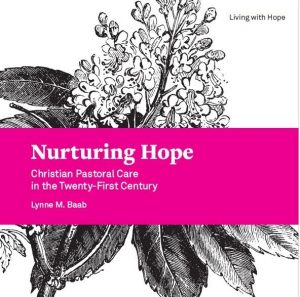 Today, on August 1, Fortress Press released my new book, Nurturing Hope: Christian Pastoral Care in the Twenty-First Century. I had a great time writing that book because I want Christians to understand the fascinating trends in Christian pastoral care that we can see today. In the book, I outline seven trends. I also describe four key skills for pastoral care in our time.
Today, on August 1, Fortress Press released my new book, Nurturing Hope: Christian Pastoral Care in the Twenty-First Century. I had a great time writing that book because I want Christians to understand the fascinating trends in Christian pastoral care that we can see today. In the book, I outline seven trends. I also describe four key skills for pastoral care in our time.
The trends and skills need to be situated in an understanding of what exactly pastoral care is. “Pastoral” comes from the Latin word pastoralis which means “relating to a shepherd.” Christians get their understanding of shepherding from passages in the Bible like Psalm 23 or Jesus’ words about being the Good Shepherd in John 10:11-18.
The clearest passage about the tasks of a shepherd is Ezekiel 34. God speaks through Ezekiel, saying that the leaders of Israel have not shepherded the people. God will become the people’s shepherd. God will seek out the lost sheep, feed them, and give them rest. God will bind up the injured and strengthen the weak (Ezekiel 34:11-16).
The women who support each other in the prayer group I described are doing these tasks for each other as they pray for each other’s injuries and weaknesses. The leaders at the Wednesday Night Dinner, and the congregation members who attend in order to build relationships there, are doing this as they talk with people who have felt lost. These leaders and congregation members provide a place of peace and rest, and they share a meal. Pastoral care is no longer an arena where only paid professionals can shine.
All Christians provide pastoral care at some times, and all Christians receive it at other times. All Christian pastoral care is modeled after Jesus, the Good Shepherd who looks after his sheep, and who calls us to engage in his ministry.
In the next post, I’ll lay out the seven trends I discuss in my book, and in two posts after that, I’ll describe the four skills that I think are essential for pastoral care in our time. To be continued . .
As an Amazon Associate, I receive a small amount for purchases made through appropriate links.
Thank you for supporting Godspace in this way.
When referencing or quoting Godspace Light, please be sure to include the Author (Christine Sine unless otherwise noted), the Title of the article or resource, the Source link where appropriate, and ©Godspacelight.com. Thank you!



